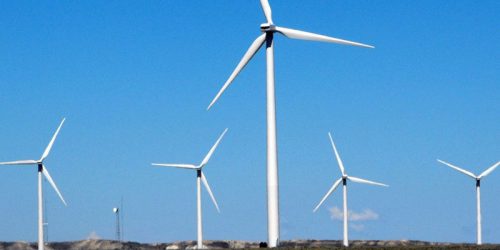ISLAMABAD: As electricity tariffs go out of reach of consumers, a group of foreign investors has sought Prime Minister Imran Khan’s intervention to remove roadblocks to cheap 425mw alternative and renewable energy (ARE) projects of less than 4 cents (Rs6.3) per unit.
The Pakistan Foreign Investors Forum (PFIF) — a group of wind and solar energy sponsors — has complained to the prime minister that the National Electric Power Regulatory Authority (Nepra) had cleared their generation tariffs — lowest in the country so far — but the Ministry of Energy had not issued its gazette notification for almost 5-10 months owing to a lacunae in an April 2019 decision of the Cabinet Committee on Energy (CCOE).
“Nepra has recently awarded the lowest wind power tariff in Pakistan’s history at an average of US cents 3.22/kwh to five projects of 275mw (which is lower than present wind tariff of China, USA etc) located in Jhimpir — Sindh and to 150mw three solar projects located in Dera Ismail Khan at 3.9 cents/kwh),” the PFIF wrote to the prime minister.
It said in order for the projects to move forward, the tariff determined by Nepra had to be notified by the Ministry of Energy. However, the notification has been pending owing to a decision of the CCOE that required future energy projects to be inducted through competitive bidding. For this, the CCOE had set three categories, allowing projects in the first and second categories to proceed and putting 104 projects (including eight RE projects of 425mw) in the third category.
The foreign investors forum said the eight projects — five wind energy (275mw) projects in Sindh and three solar (150mw) projects in Khyber Pakhtunkhwa — were already in advanced stage as their applications were pending with Nepra. As such, these eight projects out of 104 were “inadvertently put in category III”.
Therefore, they were given tariff by Nepra which should be notified. The projects included 100mw Norinco International Power, 50mw Iran-Pak Power, 50mw Sinowell, 50mw Shafi Power and 25mw Moro Power (all wind) besides solar projects of 50mw each including Javed Solar, FAS Solar and Kolachi Solar.
Interestingly, following the CCOE decision, the government entered into agreements with “Super Six” (six renewable energy projects of 310mw) sponsored by the World Bank’s commercial arm, International Finance Corporation, at about 4.8 cents (Rs7.7) per unit on the direct intervention of the prime minister.
The PFIF requested the prime minister to “facilitate in amending the said CCOE decision enabling gazette notification of these lowest wind power tariffs…This will not result in any subsidy, grant or concession; on the contrary it will pave the way for not only reducing the country’s energy cost, its import bill and circular debt but will also bring in the much needed foreign investment of about $500 million, provide jobs to 700 people during construction and 300 people during operations”.
A senior government official said the matter had been discussed at various levels – Alternate Energy Development Board (AEDB), Power Division, Planning Division and the PM Office. He said at a recent meeting on energy presided over by the prime minister, the Energy Division had reported that all imported fuel including LNG-based tariffs were significantly higher than Rs12 per unit.
The Nepra chairman is reported to have called for allowing ARE projects involving Rs5-6 per unit tariff in line with future vision of the government and the regulator to have improved energy mix and increasing RE’s share to 25pc (8000mw) by 2025 and 30pc by 2030.
The prime minister was displeased that cheaper energy avenues were being discouraged and desired a way out.
A Power Division official, however, said it could not notify Nepra determined tariff as long as the CCOE decision was in place.
He said the government had taken a considered decision to move towards competitive tariff regime under the Alternative and Renewable Energy Policy (AREP) 2019. He said the Power Division could take the next step on the issue once it received something in writing from the Prime Minister’s Office.
The official said the Power Division had submitted the request for proposals (RFPs) for holding bidding of solar and wind power induction months ago to Nepra which had raised certain objections followed by public hearings in the last week of October 2020.
He said it was strange that Nepra was approving tariffs even if these were lowest for renewable energy projects without bidding as required under the CCOE decision and AREP 2019.
The PFIF argues that they had made significant investments following the government policies and requirements including those on purchase of land which could not be offered for bidding to fresh investors.







